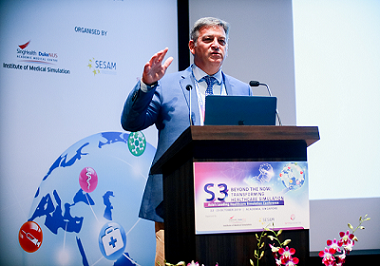Clinical Learning Passport: an initiative to enhance Nursing Students’ learning experience in Emergency Department
1) Introduction (Setting, background and identification of needs leading to the initiative)
The vigorous and fast-paced environment of Emergency Department (ED) poses unique challenges for learning opportunities for nursing students. The high-pressure situation in ED is one of the factors that might hinder the structured learning and clinical skill development for nursing students. In addressing these challenges, the Clinical Learning Passport (CLP) initiative was developed as an educational tool to enhance learning experience of nursing students posted to ED.
2) Description (Description of initiative and approach/methods used)
CLP provides structured learning activities, variability of clinical exposure and promotes engagement with different healthcare professionals in different designated areas. The CLP comprises brief description of nursing roles and engaging learning activities including skills and procedures available at each assigned area. In addition, CLP integrates digital element i.e. a QR code that links to preclinical orientation contents. Nursing students will receive the CLP on the first day of posting. Clinical Instructors will periodically check the progress of nursing students’ learning and facilitate deeper discussions on clinical situations. Students will retain their stamped passports that record their learning achievements during their ED posting.
3) Discussion (Discussion of the impact/outcome, and novelty of the initiative)
A post CLP implementation survey was conducted for 53 nursing students. 96.2% agree that CLP sets clear expectation on skills and procedures at various areas in ED. 98.1% understand the role of nurses in assigned workstations in ED and most of the activities in CLP. 79.3% state that durations being attached to various areas are adequate. 88.6% share that there are sufficient opportunities to participate in the activities as stated in CLP. The CLP offers a cohesive and learner-centric guide to support students’ learning in a new and dynamic environment. It provides them direction in terms of knowledge acquisition and environmental familiarisation, engaging them in self-directed learning. The CLP also helps prime students’ minds, mentally preparing them to embrace new learning experiences. Using the concept of a passport incorporates current trends that appeal to the younger generation, making learning more fun and engaging.
© 2025 SingHealth Group. All Rights Reserved.














